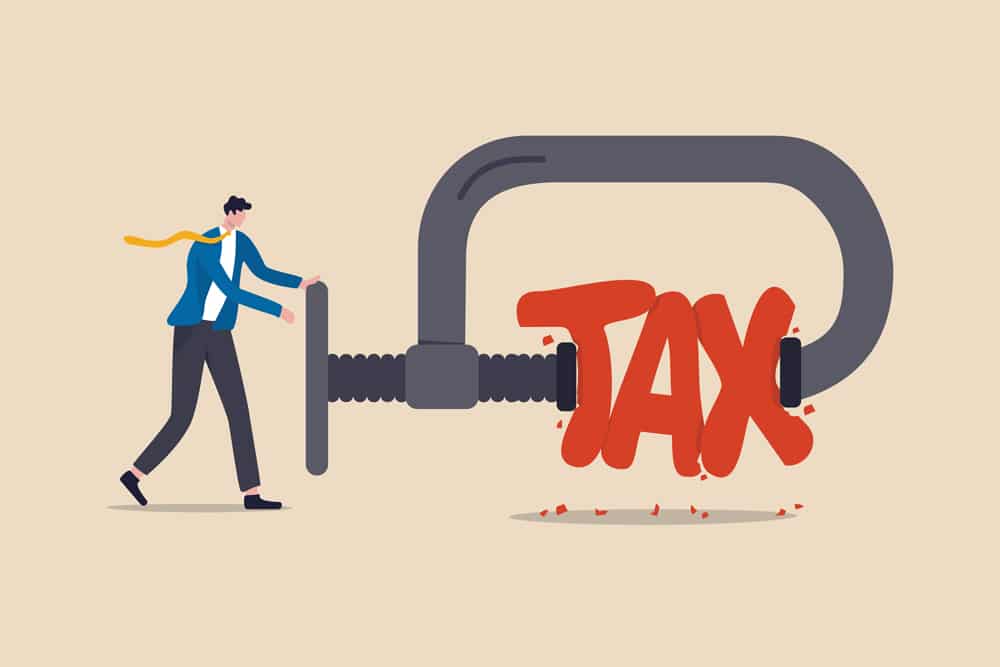
The 3 Golden Rules Of Lending
Lending money to invest in real estate binds property investment together. Without taking on debt or risk, the average person will seldom advance financially in life.
Put simply – without borrowing money, we as investors would be limited and completely stuck.
It’s important that lending is discussed, and investors recognise and understand the best type of investment loans. Here are three very simple rules to follow when borrowing funds for investing:
LEVERAGING SOMEONE ELSE’S MONEY
Can we build an amazing property portfolio while leveraging someone else’s money?
The answer is yes. We as investors can use the bank’s money to grow our wealth. Let’s paint an example.
When an investor goes out and buys a property, they generally borrow around 80 per cent to 95 per cent of the bank’s money.
They’re also using a small amount of their own capital as a deposit and leveraging the rest from the bank. Lending money in the scheme of things is relatively inexpensive.
Right now, cash is cheap with some banks’ lending out money at below three per cent – some even lower! Even interest rates higher than this should not be feared but rather embraced, as the upside benefits far out-weigh the risk.
The key phrase “the only failure is the failure to participate” has been embedded in my mindset and should be shared with all. Once you’re involved, even when you sleep, the market can provide you with profits!
INTEREST ONLY LOANS VS PRINCIPAL AND INTEREST LOANS
If you have the option of principal and interest loans or interest-only loans, then it is always advisable to consider interest-only.
The logic behind this is that your interest-only repayment is always going to be lower than a principal and interest repayment. You have, with the vast majority of home loans, the option of making additional repayments at any time without penalty.
With an interest-only loan you could choose to make the same repayment as if the loan was principal and interest, but you have the option of making a lower repayment if you choose. This allows you to be flexible and manage your portfolio accordingly.
Understand if you select principal and interest at the very beginning when you sign the loan, you will be locked into making the higher repayment.
One of the main reasons lots of investors choose interest-only loans is that when you make additional repayments to reduce your debt, who owns those repayments? The answer is you, the investor! As opposed to when you make additional payments through a principal and interest contract, who owns the principal payment? The answer is the bank!
It’s important that you choose the right loan, so you as an investor can control the process. That’s why having an experienced and knowledgeable finance broker on your team is vital.
SPREAD YOUR RISK WITH VARIOUS LENDERS
Most banks have clauses in their loan documents that entitle them to review any one of the property loans you hold with their bank at any time.
Some property owners can be caught napping, as the banks can ask for additional funds if they believe the property value has decreased.
Alternatively, there are situations where your debt may be too high for what you are now earning, for example, your earning capacity changes with a new employment status.
This clause means the bank is entitled to use equity in any of your other properties, held with the same bank, to ensure they are protected from changes in property values, even if it is not specifically related or attached to the original loan.
In other words, all properties are security for all loans with the same lender, which can severely limit your investing future. The clause is known as the “all monies clause.”
The alternative is to use securitised lenders (non-bank lenders) or to be diverse by using more than one lender.
Therefore, the result is that any funder you have borrowed money from to invest can only use an individual property as security within your property portfolio.
Understand the best way to control the bank loan terms and conditions is to use a new funder every time you invest. It is very important to be in control of your financial future.
Sophisticated borrowers, who want to grow their portfolio without the risk of the lender reviewing their complete financial position every time they apply for funds to buy another property, do not cross securitise their properties unless it is necessary. This is the best way to move forward easily.
HOW TO LEND SMARTER
When it comes to smart investing, lending in itself requires a solid strategy.
The basics listed in this blog are a great start but there are many more ways you can optimise your finance structure for better returns and a stronger portfolio. To learn more, join our free property investing seminar.
Our expert property coaches are exceptional at helping investors build a wealth creation plan that optimises every available opportunity for new and existing investors.
Spaces are limited – register now for the free property investor webinar.
By Sam Saggers
Recent Articles
How You Can Be 3-7 Years Away From A Multi-Million Dollar Property Portfolio
Using real estate to become a successful property investor is underpinned by one very important philosophy – profits are better than wages. The goal of property investors in the market is to target optimistic returns. However, this does beg the question – if property investing is such a smart and lucrative profit making machine then why don’t more people do it?
Property Strategist Sam Saggers: ‘How You Can Benefit From My Wins And Losses’
Real estate is a game of winning or losing, and as a professional property strategist, in order to get to where I am today, I can honestly say I’ve experienced the full spectrum. But to understand how I’ve managed to turn any loss I’ve had into a gain and support others to do the same, it helps to know where it all began.
How To Create A Step By Step Property Plan
To succeed as a property investor, there is one fundamental component you need – a plan. You need a plan that leaves no bases uncovered that would potentially cause issues in the future. Don’t have a plan? Well, you can use my basic road map!
The Secret Behind Buying A Winning Property
When you analyse a deal, it is wise to take it through the following four steps to ensure you have a basic level understanding of the property itself and how it fits into its environment…
Is Buying Off The Plan Right For You?
Buying off the plan can be a great purchasing strategy for property investors because it allows us to create equity for a small amount of money upfront.
In this article we explore what buying off the plan is, and what factors you need to consider in order to go through the process smoothly.
The Ultimate Location Rulebook For Buying Property
Within any market – primary or secondary, there are indicators of the market’s ability to perform. When we understand what these market drivers are, we can organise our investment properties into locations that are primed for growth. The ‘Location, location, location’ is actually derived from more than just a post-code. These buying factors are split up into two groups – macro drivers and mirco drivers…
1 Deposit, Multiple Properties – Here’s How!
Buying an investment property and growing a portfolio that is going to generate long-term wealth is a discipline of business. In basic terms, this means you have to have a clear understanding of how you’re going to maximise your profits. Because of this, every investor needs to be able to develop a cash on cash strategy to help bank roll their property endeavours to ensure they have a functional and profitable business model.
How To Accelerate Wealth Creation Through Real Estate
Wealth is a habit; and rich people have the habit of living well. They pass that on, they teach, share, network and help each other. The fact remains, those you surround yourself with, do have a high impact on your ability to create and sustain wealth.
How To Claim Back 78 Per Cent Of Your Tax!
There are ways to reduce how much tax you actually pay in order to keep more cash in your pocket – the golden word – property investment. You see, owning real estate in Australia can be very tax effective. This is how you can minimise the amount of tax you are liable to pay.












